 Think your boss is bad? Then you've never dealt with a mob boss. 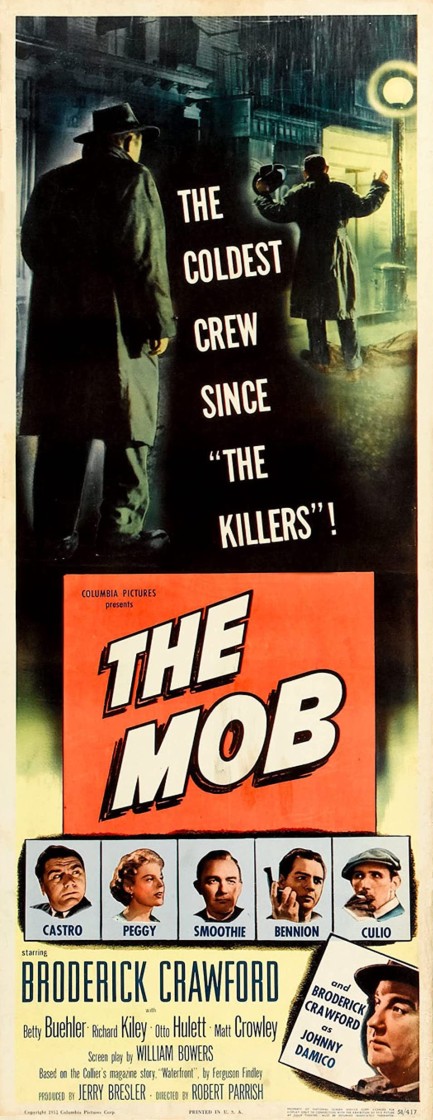
Falling into the category of pleasant surprises, The Mob, for which you see an evocative promo poster above, stars Broderick Crawford as a cop sent to infiltrate an organized crime syndicate. You've seen the idea before. He works his way up the ladder and brings the bad guys down, but this iteration comes with brisk pacing, a set of unpredictable twists, and a supporting cast that includes Ernest Borgine, Richard Kiley, and Lynn Baggett. If you keep your eyes open you might even spot Charles Bronson.
Crawford had already won an Academy Award and a Golden Globe for 1949's All the King's Men, so he unsurprisingly does a bang-up job in this film, instilling his deep cover cop with believable toughness and a gruff but relatable humanity. Crawford would later appear in such excellent films as Scandal Sheet, New York Confidential, Born Yesterday, and Human Desire, but The Mob may be his underrated classic.
The only flaw with this film, in our opinion, is a goofball denouement. We suppose, after ninety minutes of almost nonstop high tension, the filmmakers wanted audiences to leave smiling, and we're sure they did, because the scene, while dumb, is pretty funny. But in any case, we recommend giving The Mob a whirl. You'll enjoy it. It opened nationally in the U.S. in late September, but had its actual debut at special premiere today in Dayton, Ohio (why, we don't know) in 1951.
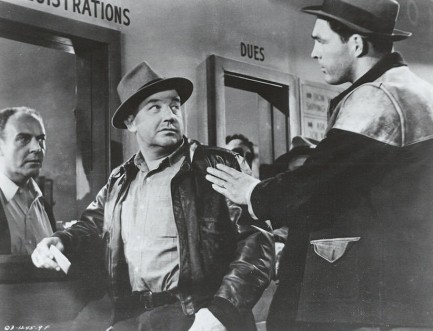 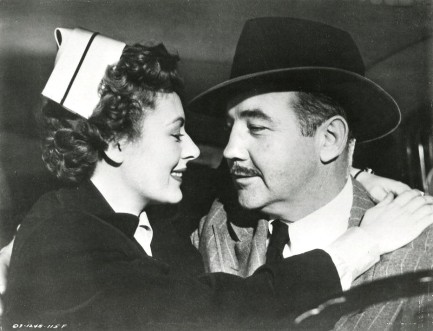 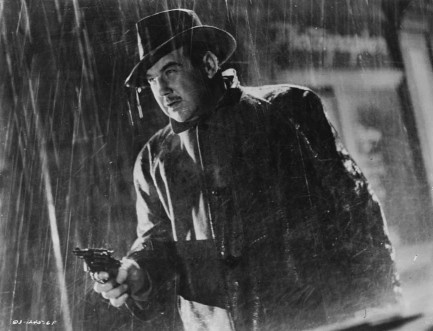 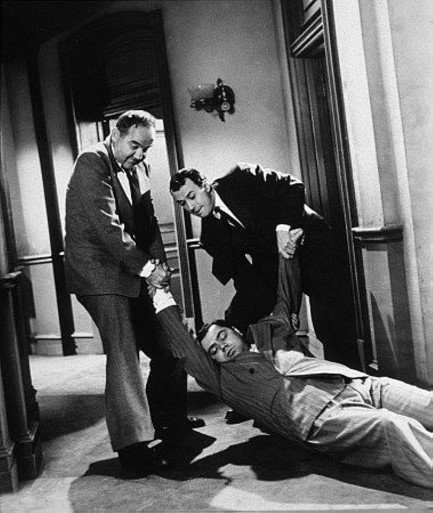 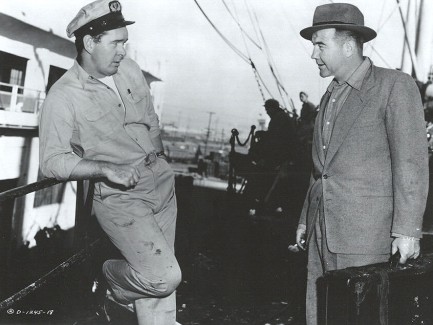 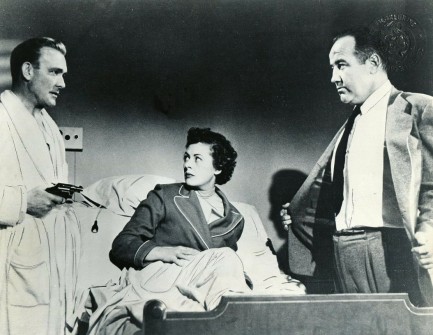 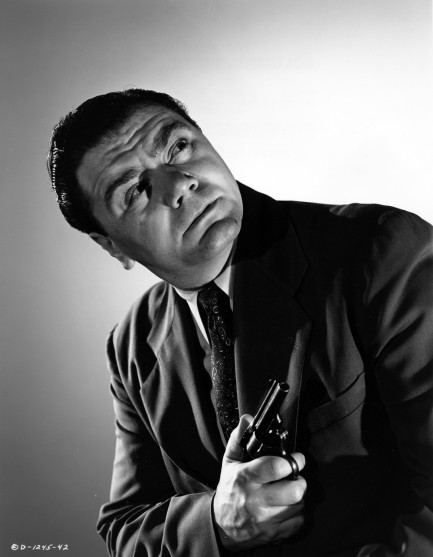 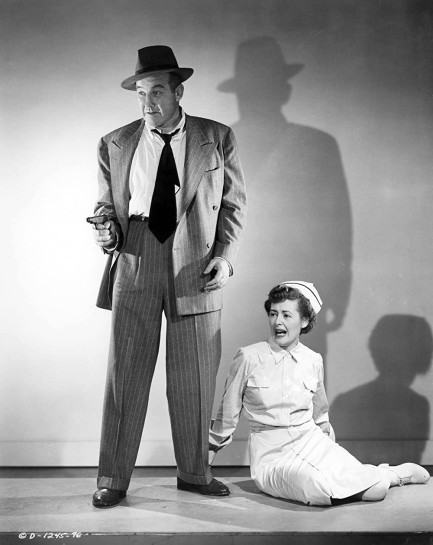
 In show business the camera never sleeps. 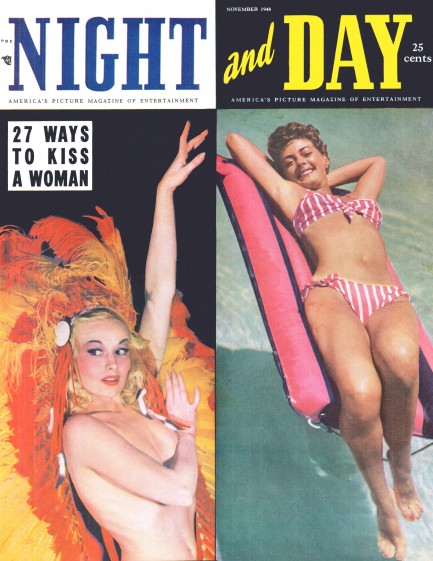
Night and Day, for which you see the cover of an issue—its very first issue, actually—that was published this month in 1948, billed itself as America's Picture Magazine of Entertainment. It was launched in New York City by Alho Publishing, and as you'll see it came out of the gate swinging for the fences with its visual content, from its bisected cover featuring burlesque dancer Lili St. Cyr and actress Ramsey Ames, to its tongue-in-cheek feature on the twenty-seven types of kisses, to its approving look at George White's Scandals revue at Hollywood's Florentine Gardens. Interesting side note on Scandals—Wikipedia says it ended in 1939. Well, obviously not quite. Elsewhere Night and Day touches on college hazing, professional football, and the Greenwich Village art scene. In total, it's a gold mine for vintage photos.
Our favorite offering in the magazine is its quiz on Hollywood stars and their stand-ins. You just have to take a good look at twenty performers, and try to determine which twenty random people are their stand-ins. To score well on such a quiz you'd have to be either the biggest Hollywood head in history or someone who has the opposite of face blindness, whatever that would be. Face unforgettability, maybe. Even though we don't expect many people to try the quiz, we worked hard to put it into internet-usable form. In the magazine the photos were five-across on the page, which made them too small for the column width of our website. So we rearranged them to be two-across, and thus enlarged, they're clear, though you have to do a lot of scrolling. Nevertheless, it's there if you want, along with fifty other panels to eat your time with marvelous efficiency. Please enjoy.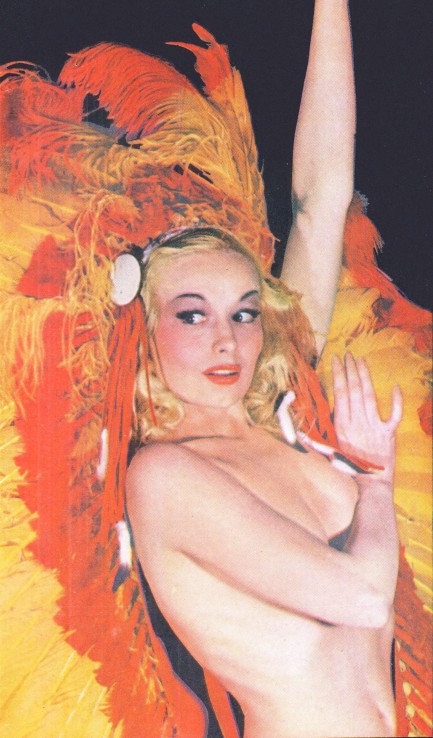  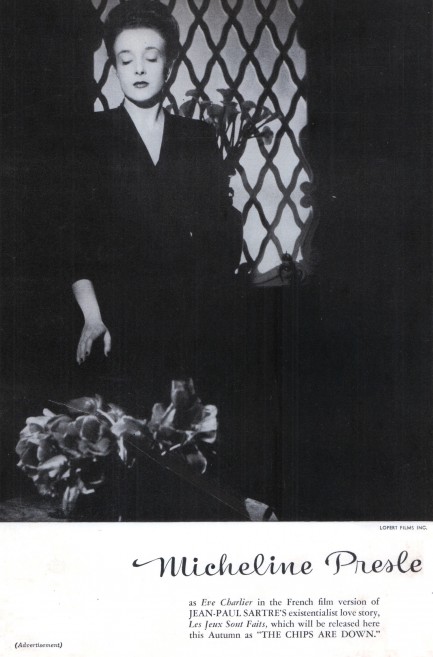 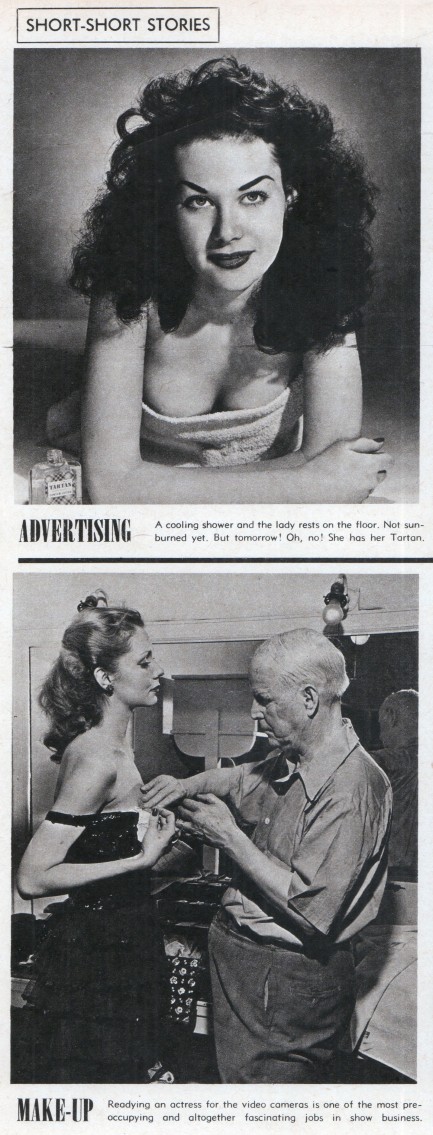 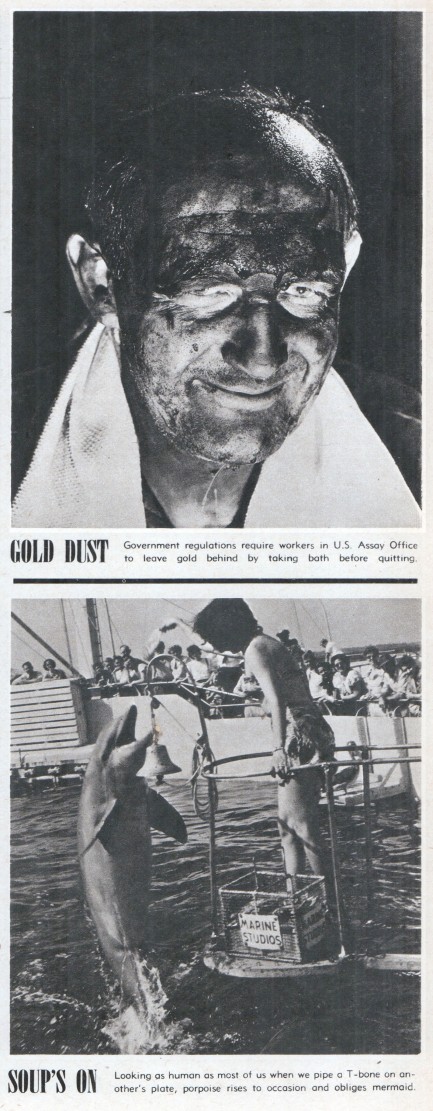 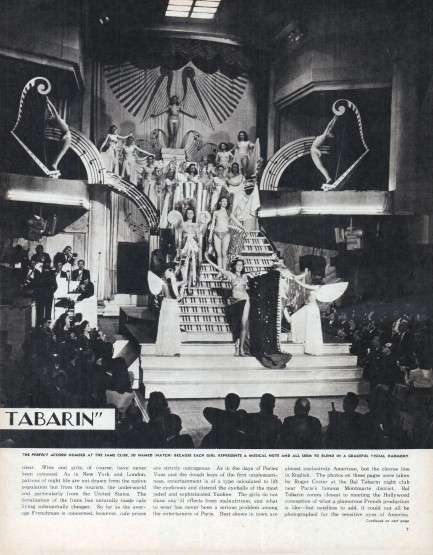 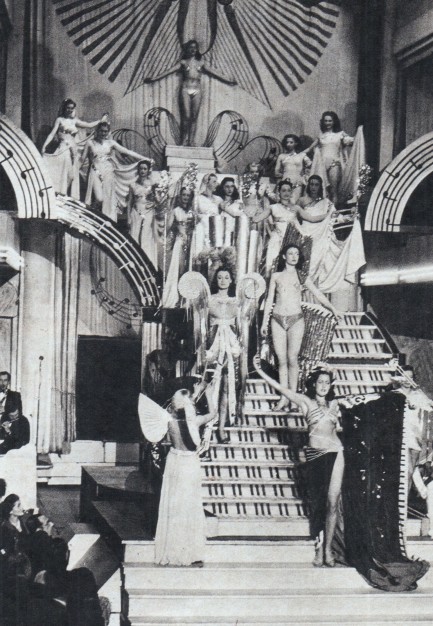 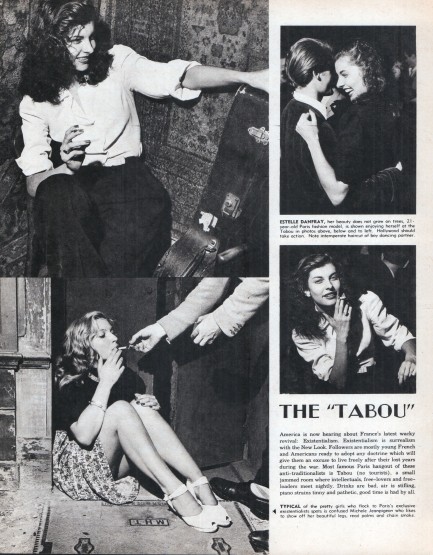  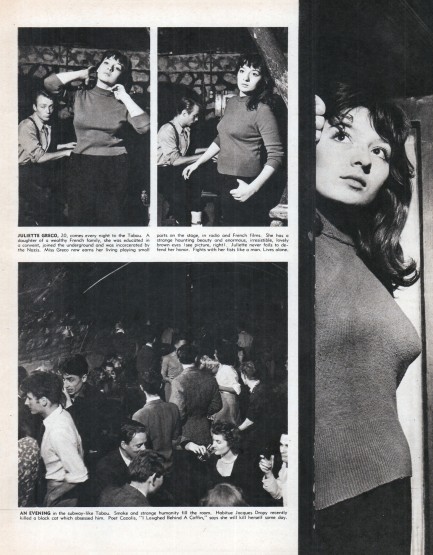 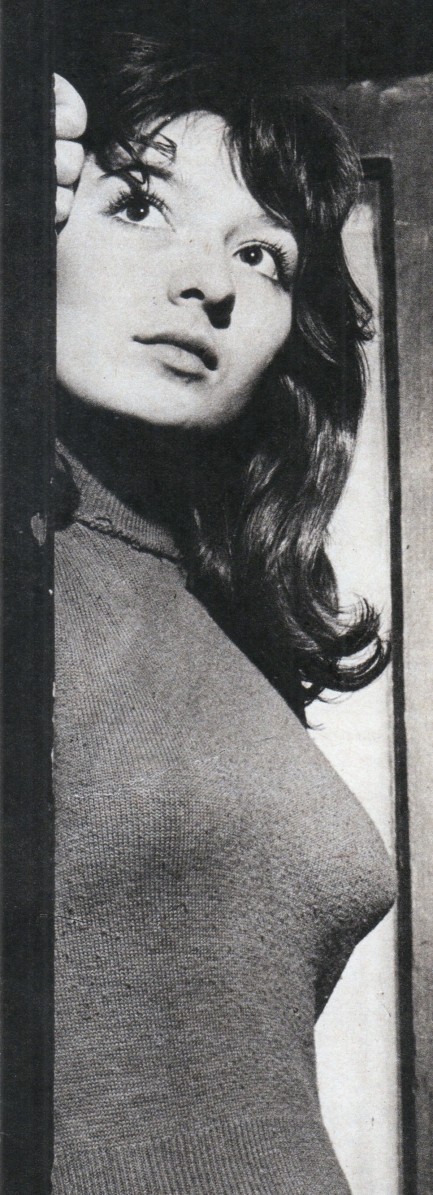 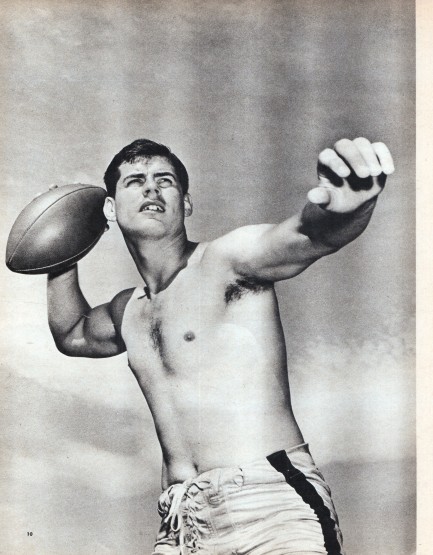 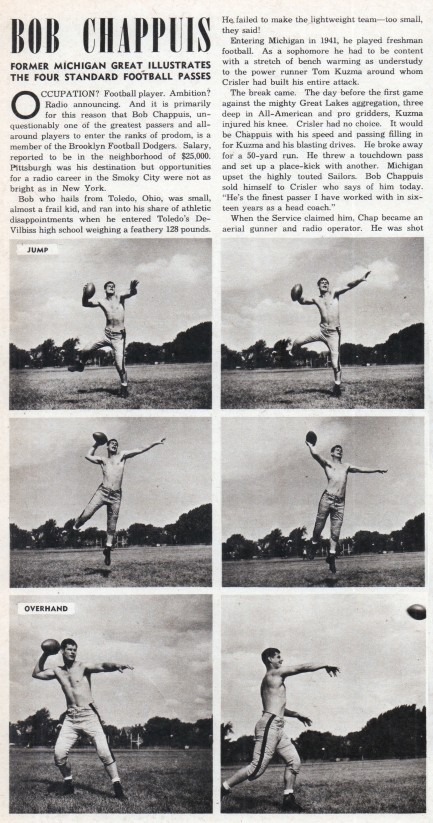 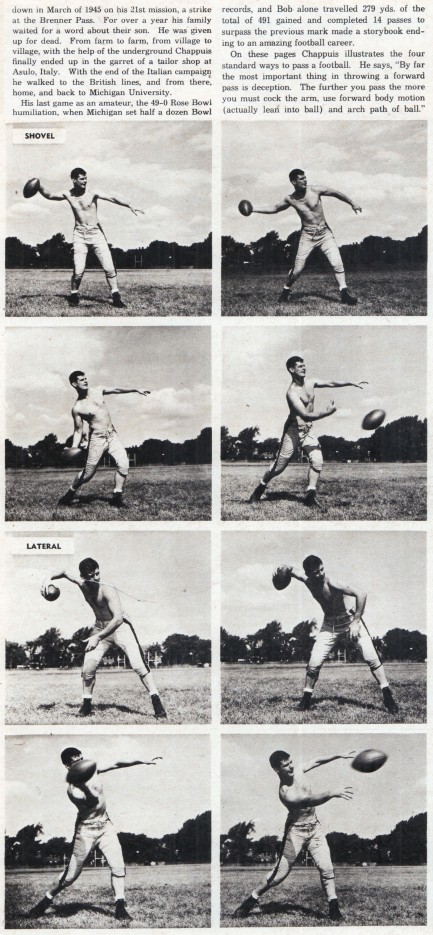 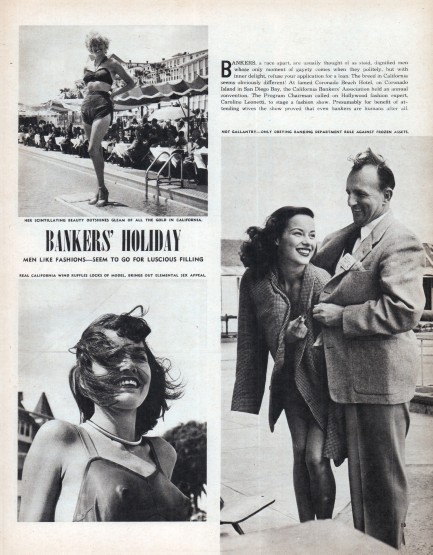 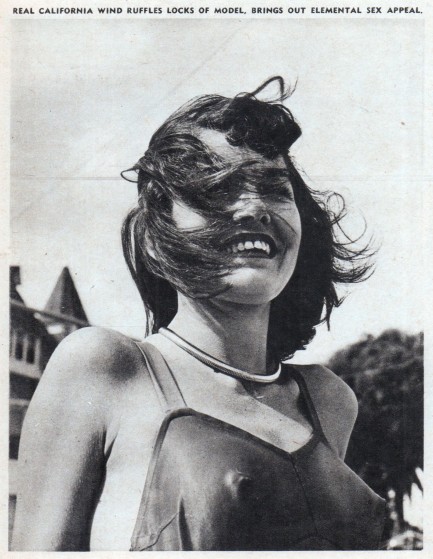 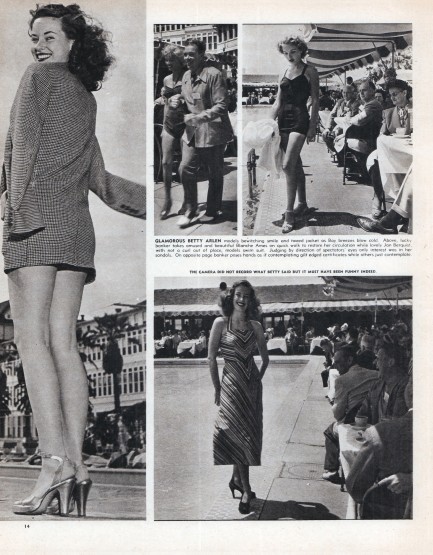 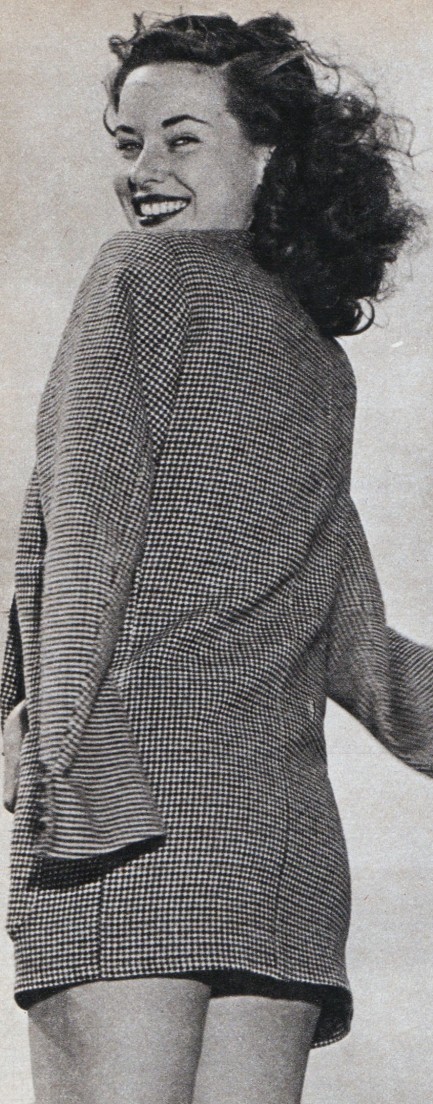 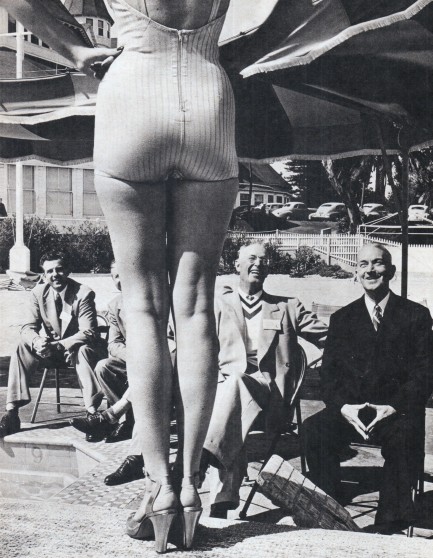 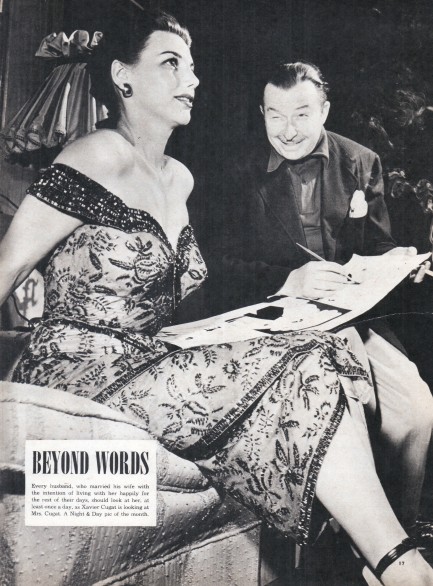 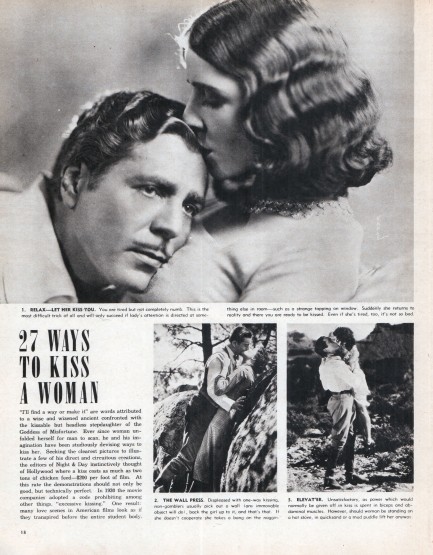 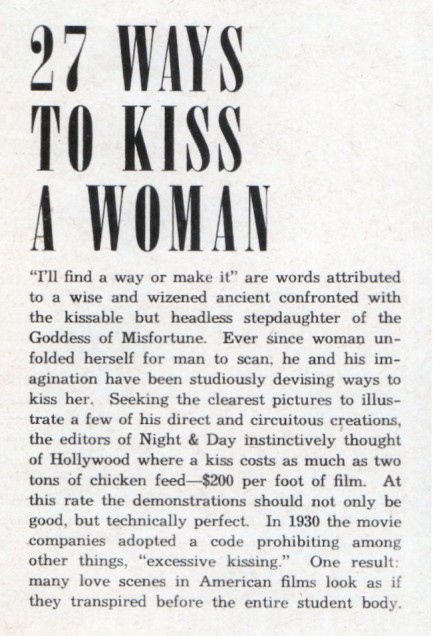 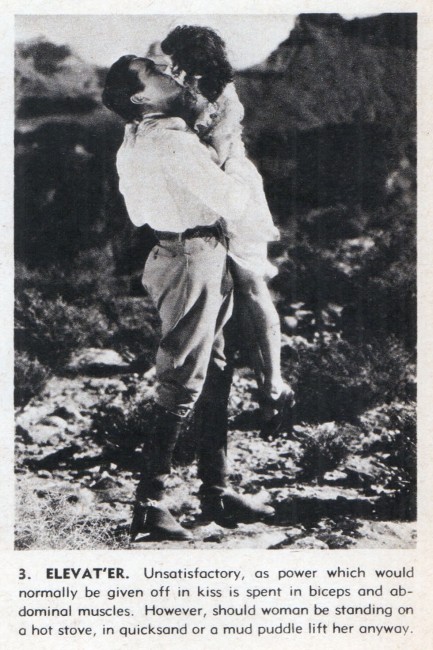 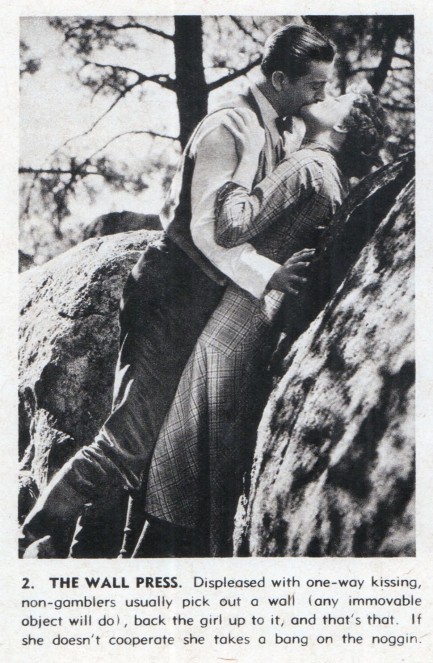 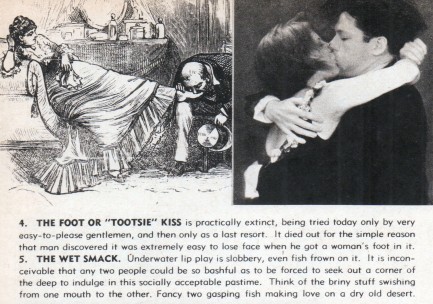 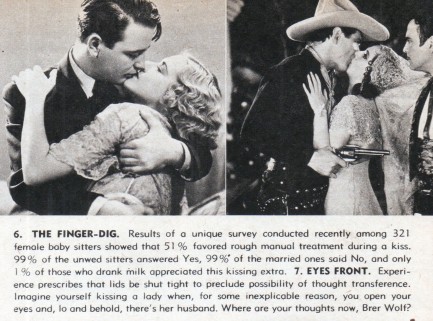 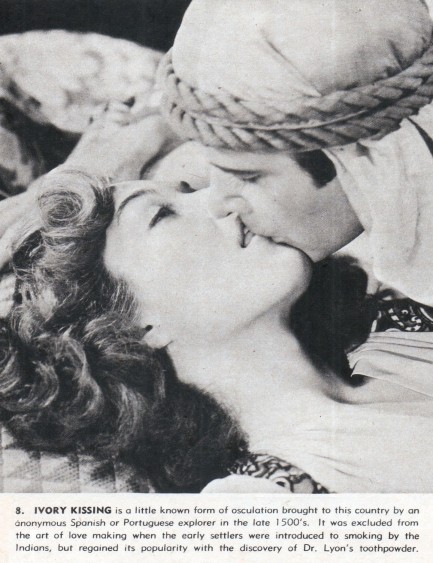 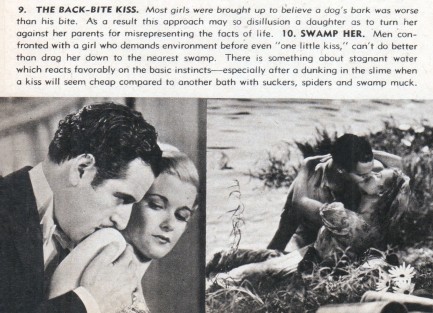 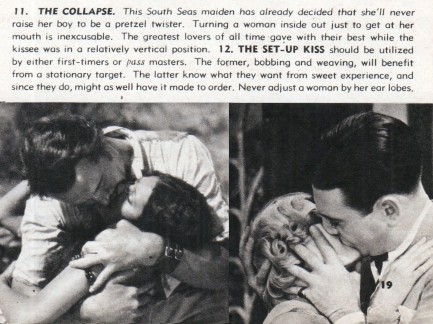 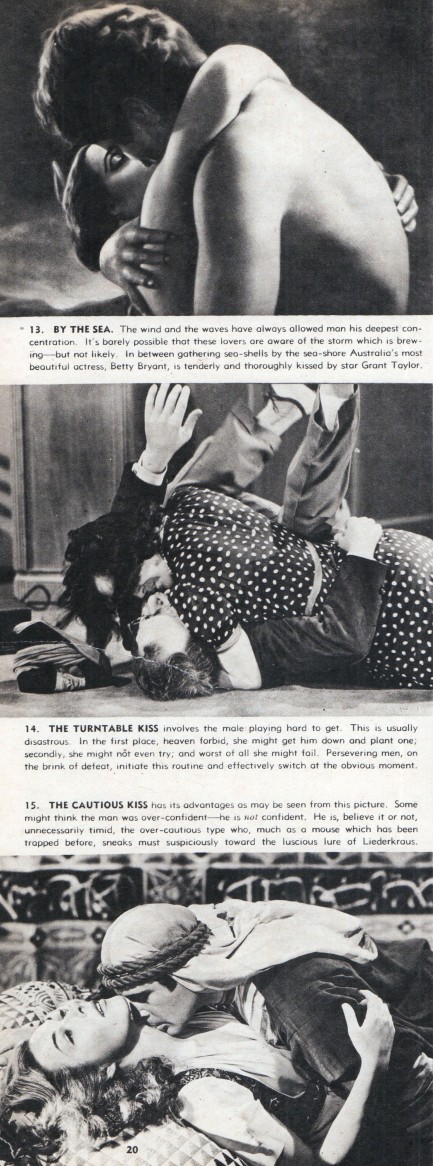 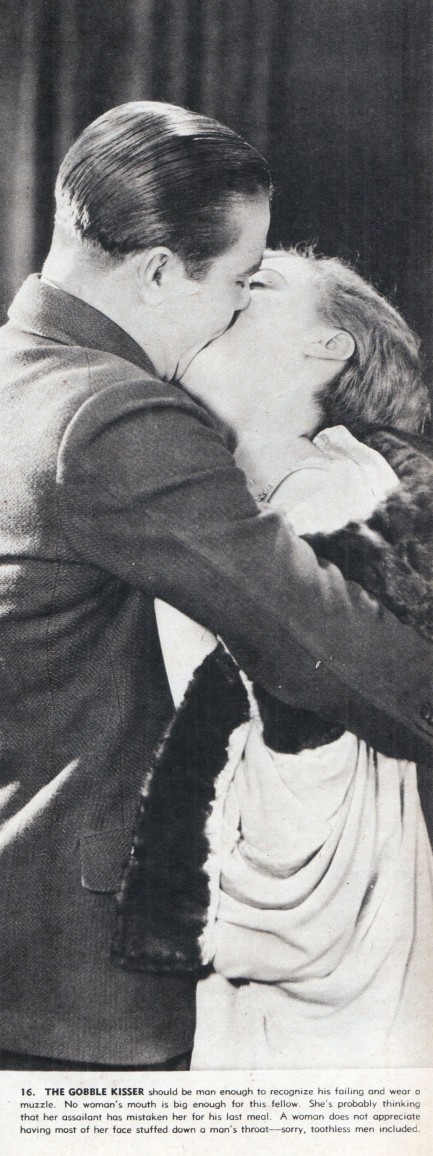 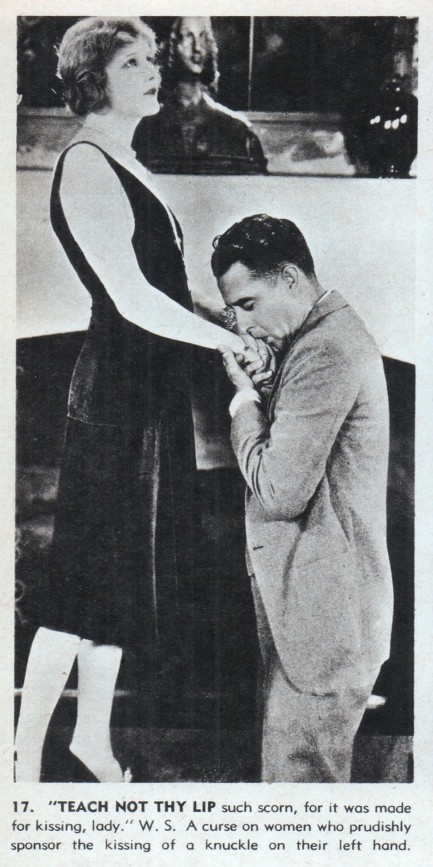 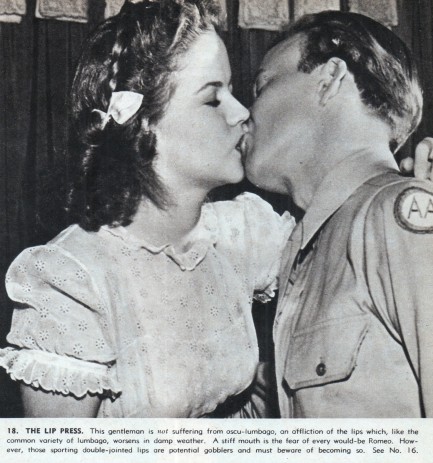 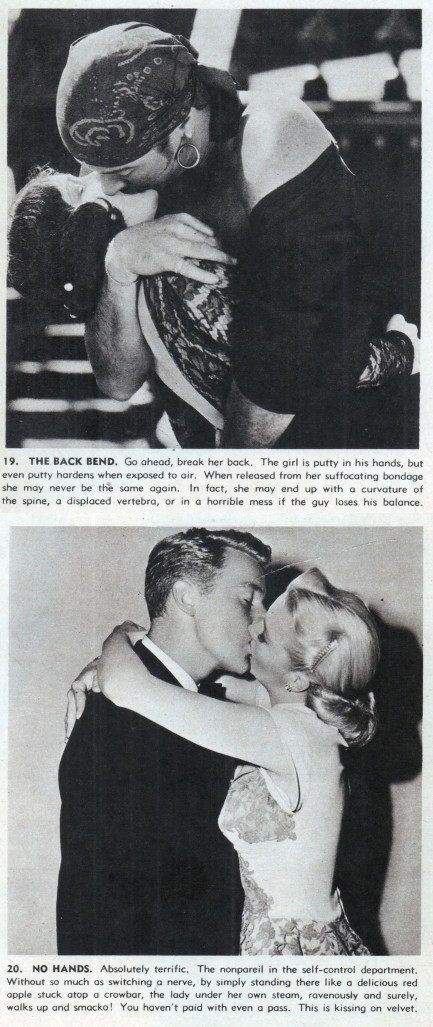   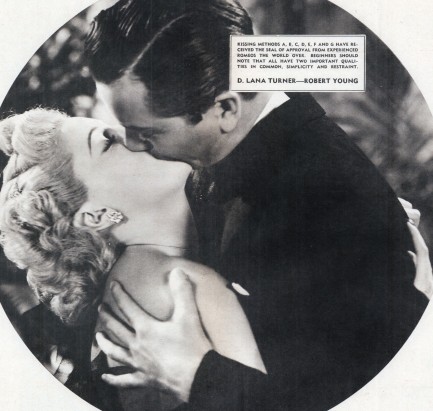  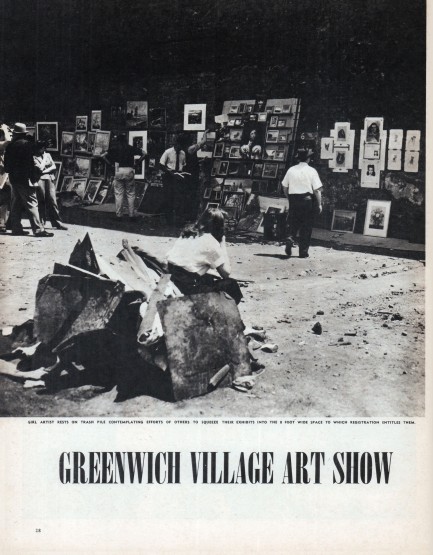 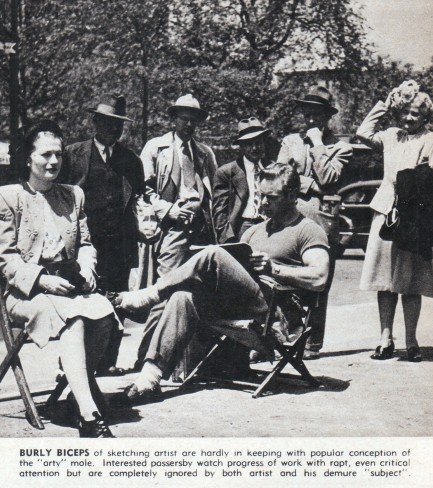 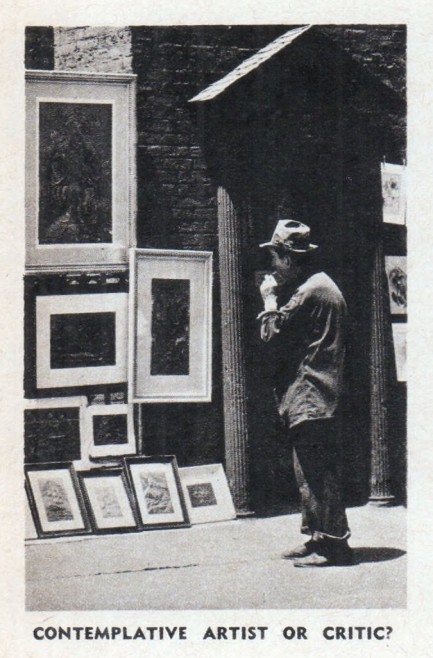 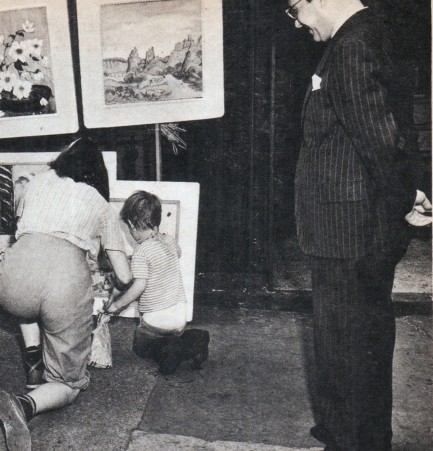 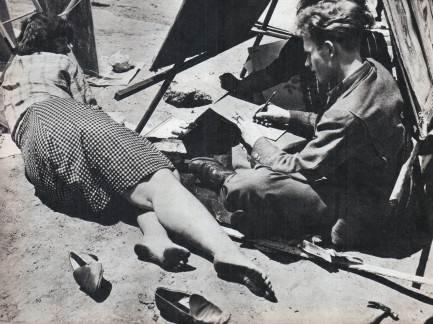 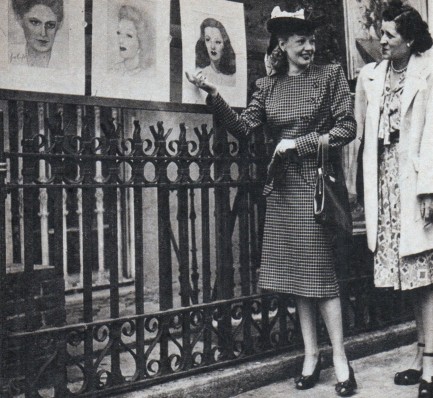 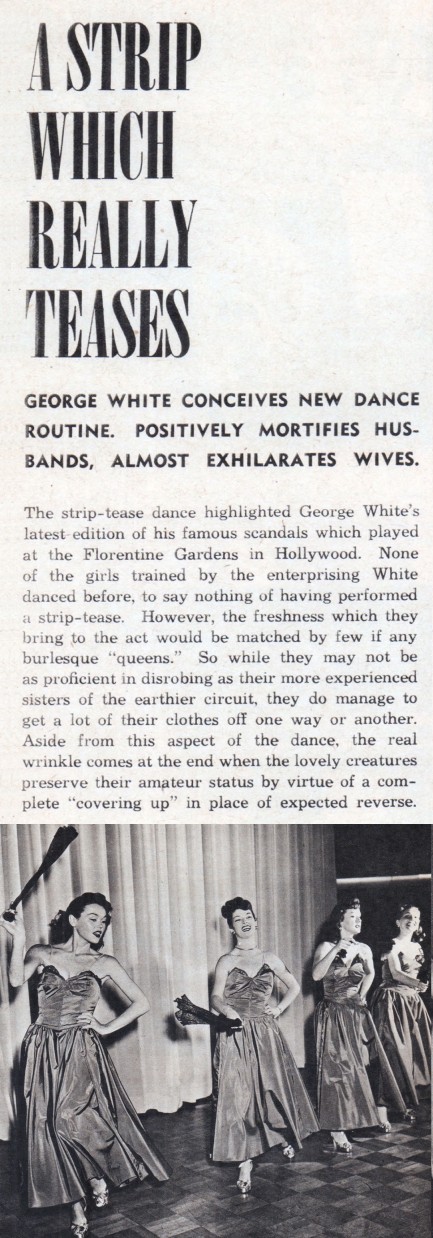 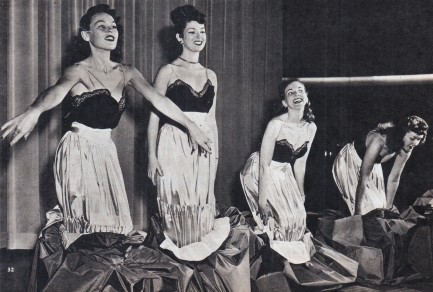 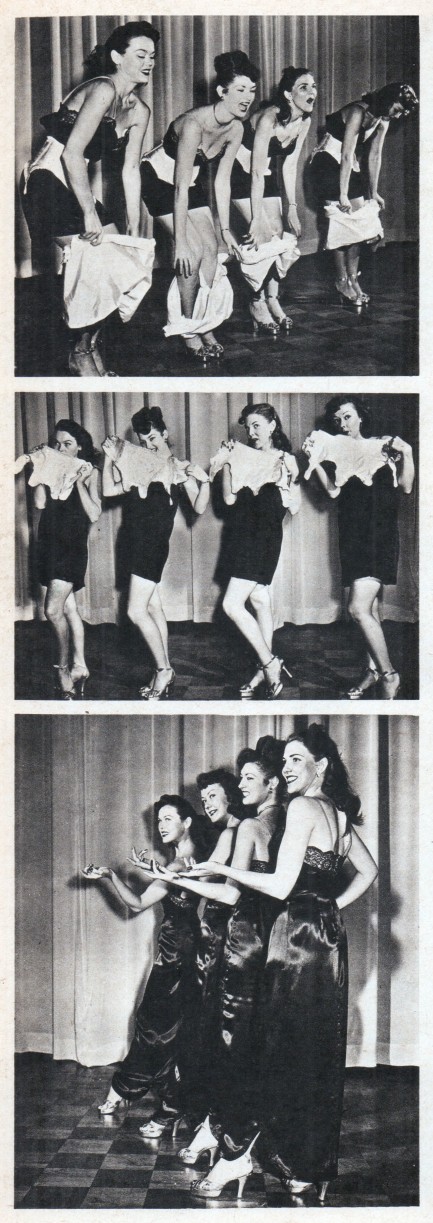 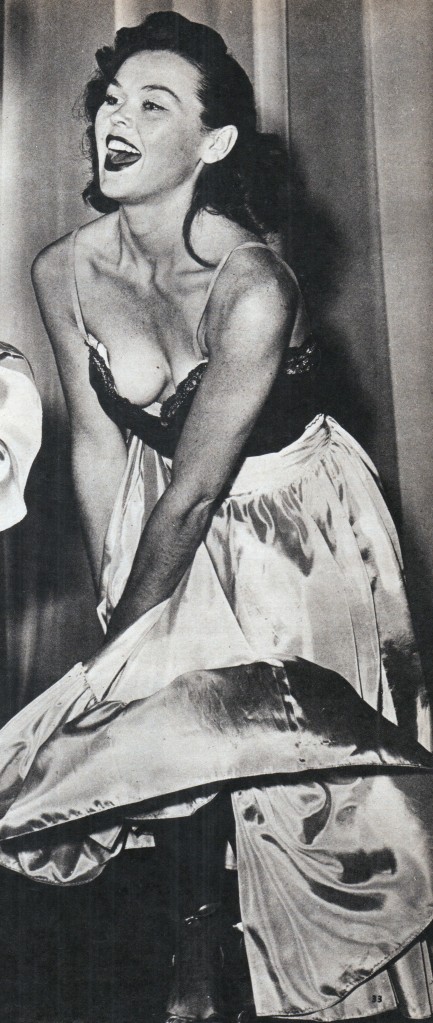 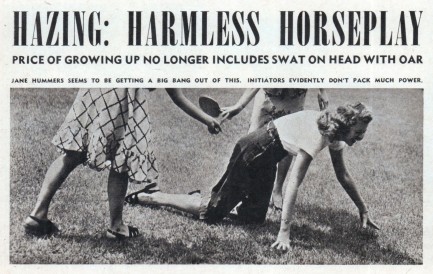 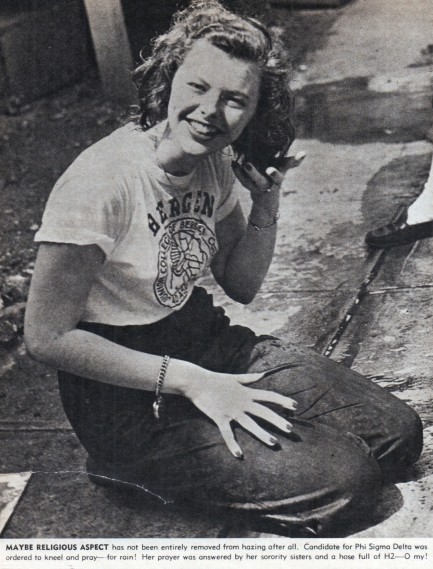 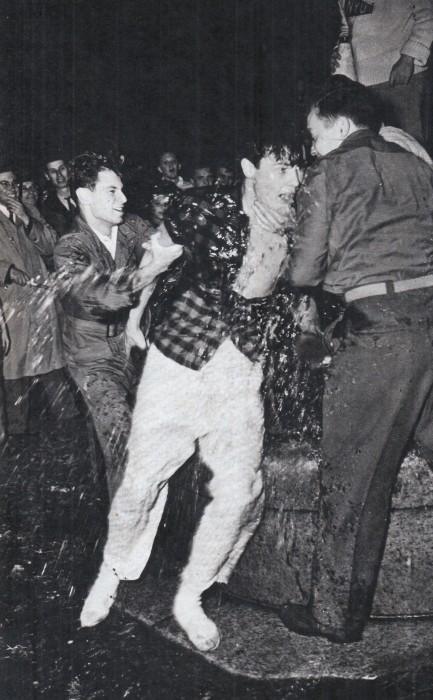 The Hollywood movie star stand-in quiz begins below. First you get twenty famous actors and actresses: And below are their twenty stand-ins. If you get more than half of these right you're a human face recognition algorithm. Quit your day job immediately and report to the FBI. Below are the answers.
 Embarrassing family scandal ends in murder. 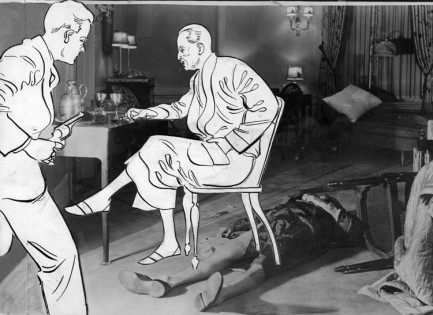
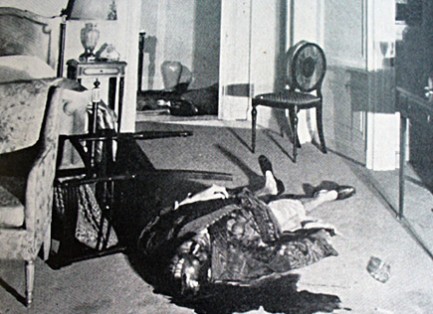 The above crime scene drawing shows murder victim Ned Doheny, Jr. in the bedroom of his Los Angeles mansion after being killed by a gunshot to the head, along with a superimposition of where police imagine he was just before he was shot. From the above angle the event looks clinical, but a reverse view reveals an unholy mess, with Doheny's face and robe drenched in blood, and a dark pool spread across the carpet. The above crime scene drawing shows murder victim Ned Doheny, Jr. in the bedroom of his Los Angeles mansion after being killed by a gunshot to the head, along with a superimposition of where police imagine he was just before he was shot. From the above angle the event looks clinical, but a reverse view reveals an unholy mess, with Doheny's face and robe drenched in blood, and a dark pool spread across the carpet. Out of sight in the hall leading to the bedroom is the body of Hugh Plunkett, Doheny's presumed murderer, dead from a self-inflicted gunshot wound. For a time this was the most famous crime in L.A. history. Doheny was the son of oil tycoon E.L Doheny, who was in trouble for passing bribes to U.S. Secretary of the Interior Albert Fall. The investigation and legal circus, known as the Teapot Dome scandal, had ensnared not just the senior Doheny but Doheny Jr. and Plunkett. They had both been indicted for conveying the dirty money from Doheny Sr. to Secretary Fall.
Realistically speaking, there was no serious threat of the Dohenys going to jail. But working class Hugh Plunkett was not a tycoon nor a tycoon's son, which meant for him the possibility of incarceration was real. When Jr. was offered immunity and Plunkett was not, their close friendship began to fray. Plunkett's growing instability spawned attempts to get him into a mental facility—whether to save his mind or save him from testifying remains a subject of debate—but it never happend. Today in 1929 he visited the Doheny mansion to talk with his pal Ned and hours later the result is what you see in the crime scene photos. in 1929 he visited the Doheny mansion to talk with his pal Ned and hours later the result is what you see in the crime scene photos. There's much more to the case—rumors of a sexual relationship between Doheny Jr. and Plunkett, rumors that Doheny Sr. pulled the trigger on both men, etc.—but we'll leave all that aside. The truly interested can find at least a dozen websites that dig into every aspect of the case. We just wanted to show you the photo-illustration, which is yet another police photo from the University of Southern California digital archive.
 Lucy, you got some ’splainin’ to do. 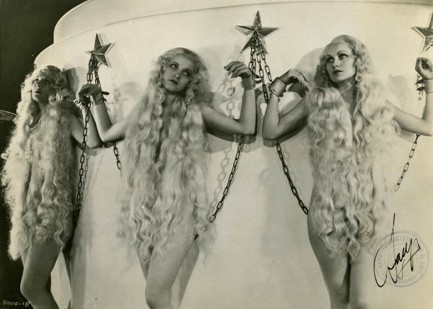
Here’s a rare promo shot from the 1933 pre-Hays Code musical Roman Scandals, an interesting film about a guy from West Rome, Oklahoma who has a vivid dream that he lives in ancient Rome. If you can deal with the sight of Eddie Cantor cavorting in blackface, it’s probably worth a rental. The movie was produced by the Samuel Goldwyn Company, and starred Sam Goldwyn’s dance troupe the Goldwyn Girls, whose most famous ex-member is Lucille Ball. And in fact, that’s Lucille Ball above, on the right, though it may be hard to believe. Trust us, though. The Hays Code, by the way, was actually enacted in 1930 but ignored until 1934, which is why cinema historians consider Roman Scandals to be a pre-Code production. The Code was finally ditched in 1968, but unfortunately in favor of the almost equally arbitrary MPAA rating system. Below, just for the fun of it, we’ve posted the back of the photo because with its writing and tape marks it strikes us as a pretty nice piece of abstract art. And at bottom we’ve posted a much clearer shot of Miss Ball. 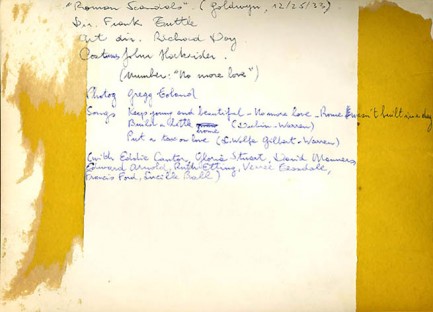 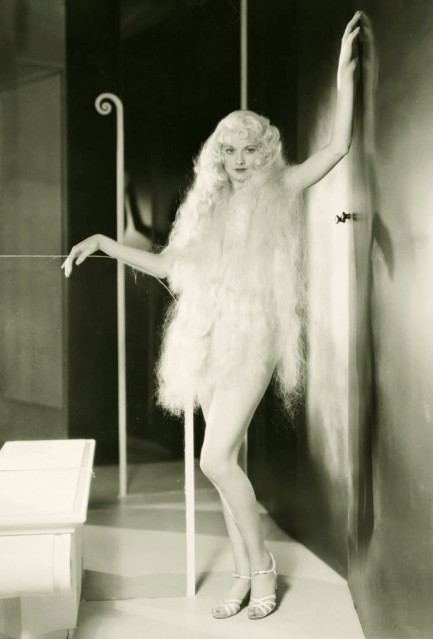
 High heels in high places. 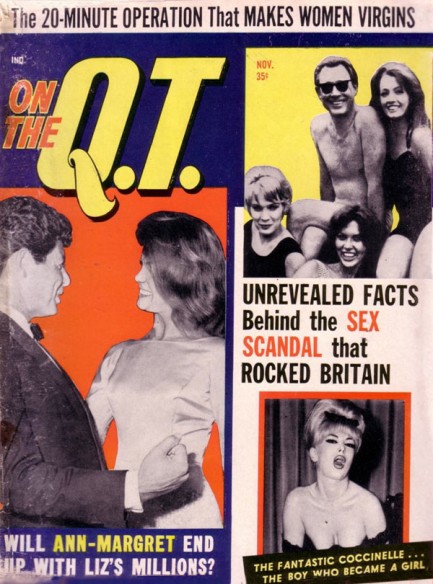
Above we have a well-worn On the Q.T. from November 1963, with Christine Keeler on the cover. Keeler, at upper right and below, was a London showgirl who had a brief relationship with Britain’s married Secretary of State for War, a man named John Profumo. The two met at a party in Buckinghamshire, in a mansion owned by Lord Astor, and though Keeler wasn’t a full-time prostitute, she occasionally made herself available to wealthy and powerful men and they sometimes gave her cash gifts. She and Profumo were involved only a few weeks, but that was long enough for people to notice. When Profumo was paraded before the House of Commons and asked to answer to the rumors, he claimed there had been no impropriety between him and Keeler. It wasn’t just the lie that sank him—members of the government were alarmed because Keeler’s many acquaintances included Yevgeny Ivanov, a Russian attaché at the Soviet embassy in London. With the Cold War in full swing, officials feared Keeler was working Profumo for nuclear secrets on behalf of Ivanov and the Russkies. The mess cost Profumo his job and reputation, and also may have brought down conservative Prime Minster Harold Macmillan, who resigned six months later for “health reasons.” It was the scandal of the century in Britain, and really, it still is. Never since have sex, politics, and state secrets been fused in such a way. There are many detailed retellings of the story, but for people interested in an inside account, Keeler published an autobiography in 2001 that sparked an outcry because she wrote that actress Maureen Swanson was one of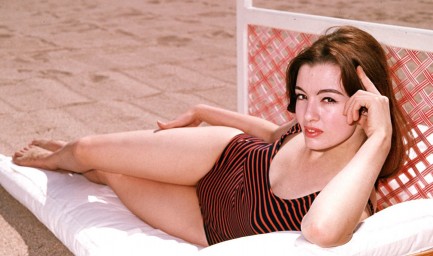 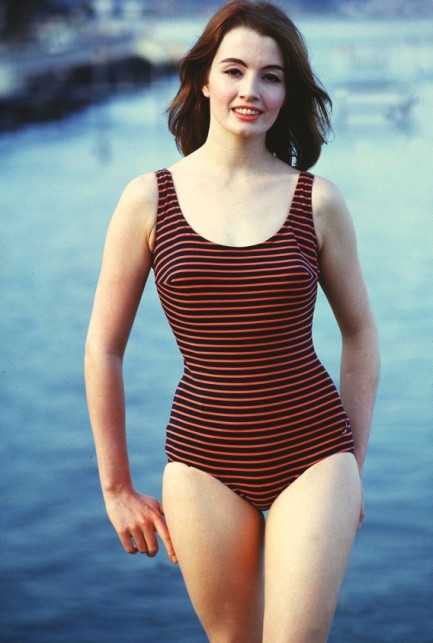 the girls who attended private orgies arranged by Dr. Stephen Ward (in sunglasses on the magazine cover). Ward was an osteopath who dabbled in pimping, and his orgies were infamous. Open only to the rich and powerful, they featured not only beautiful girls, but the occult, sadomasochism, interracial sex shows, and so forth. Maureen Swanson later became the Countess of Dudley through marriage to Lord Ednam, so Keeler’s naming of her as a participant caused quite a bit of embarrassment to British nobility, for which she sued and won a settlement. the girls who attended private orgies arranged by Dr. Stephen Ward (in sunglasses on the magazine cover). Ward was an osteopath who dabbled in pimping, and his orgies were infamous. Open only to the rich and powerful, they featured not only beautiful girls, but the occult, sadomasochism, interracial sex shows, and so forth. Maureen Swanson later became the Countess of Dudley through marriage to Lord Ednam, so Keeler’s naming of her as a participant caused quite a bit of embarrassment to British nobility, for which she sued and won a settlement. We could go on, but life is short and history’s intrigues are many. For cinematic types, the 1989 film Scandal, starring Joanne Whalley and Bridget Fonda, is an entertaining way to learn more about the event. We watched it, and, while Whalley is fine in the lead role and Fonda is good as always, only reading Keeler’s own words can convey the sense of ’60s liberation and breeziness that was such a large part of her personality, and which the British public reacted to with such revulsion. More than one writer of the period observed that when Britain crucified Keeler, they were really trying to destroy a part of themselves. Keeler said it herself: “I took on the sins of everybody, of a generation, really.”
 It's a mad mad mad mad Perkins. 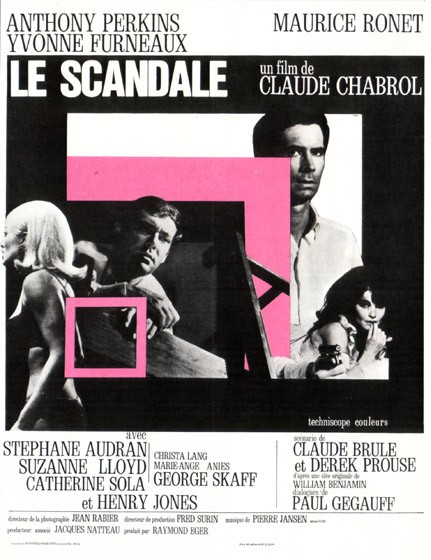
It’s difficult to imagine Anthony Perkins in any role save that of Norman Bates, but he made a number of post-Psycho films, several in France, including this oft-maligned effort by directorial legend Claude Chabrol about murder and mayhem among the feckless Parisian bourgeoisie. Perkins continued to land serious roles through the rest of the sixties and seventies, before the 1983-to-1986 triple whammy of Psycho II, Crimes of Passion and Psycho III entrenched him as cinema’s all time greatest (and twitchiest) madman. In Le Scandale he wasn’t what you’d call clinically mad, but he wasn’t exactly playing with a full deck either. Le Scandale, aka The Champagne Murders, premiered in France today in 1967.
|
 |

The headlines that mattered yesteryear.
1933—The Gestapo Is Formed
The Geheime Staatspolizei, aka Gestapo, the official secret police force of Nazi Germany, is established. It begins under the administration of SS leader Heinrich Himmler in his position as Chief of German Police, but by 1939 is administered by the Reichssicherheitshauptamt, or Reich Main Security Office, and is a feared entity in every corner of Germany and beyond. 1937—Guernica Is Bombed
In Spain during the Spanish Civil War, the Basque town of Guernica is bombed by the German Luftwaffe, resulting in widespread destruction and casualties. The Basque government reports 1,654 people killed, while later research suggests far fewer deaths, but regardless, Guernica is viewed as an example of terror bombing and other countries learn that Nazi Germany is committed to that tactic. The bombing also becomes inspiration for Pablo Picasso, resulting in a protest painting that is not only his most famous work, but one the most important pieces of art ever produced. 1939—Batman Debuts
In Detective Comics #27, DC Comics publishes its second major superhero, Batman, who becomes one of the most popular comic book characters of all time, and then a popular camp television series starring Adam West, and lastly a multi-million dollar movie franchise starring Michael Keaton, then George Clooney, and finally Christian Bale. 1953—Crick and Watson Publish DNA Results
British scientists James D Watson and Francis Crick publish an article detailing their discovery of the existence and structure of deoxyribonucleic acid, or DNA, in Nature magazine. Their findings answer one of the oldest and most fundamental questions of biology, that of how living things reproduce themselves. 1967—First Space Program Casualty Occurs
Soviet cosmonaut Vladimir Komarov dies in Soyuz 1 when, during re-entry into Earth's atmosphere after more than ten successful orbits, the capsule's main parachute fails to deploy properly, and the backup chute becomes entangled in the first. The capsule's descent is slowed, but it still hits the ground at about 90 mph, at which point it bursts into flames. Komarov is the first human to die during a space mission.
|

|
|

It's easy. We have an uploader that makes it a snap. Use it to submit your art, text, header, and subhead. Your post can be funny, serious, or anything in between, as long as it's vintage pulp. You'll get a byline and experience the fleeting pride of free authorship. We'll edit your post for typos, but the rest is up to you. Click here to give us your best shot.

|
|

































































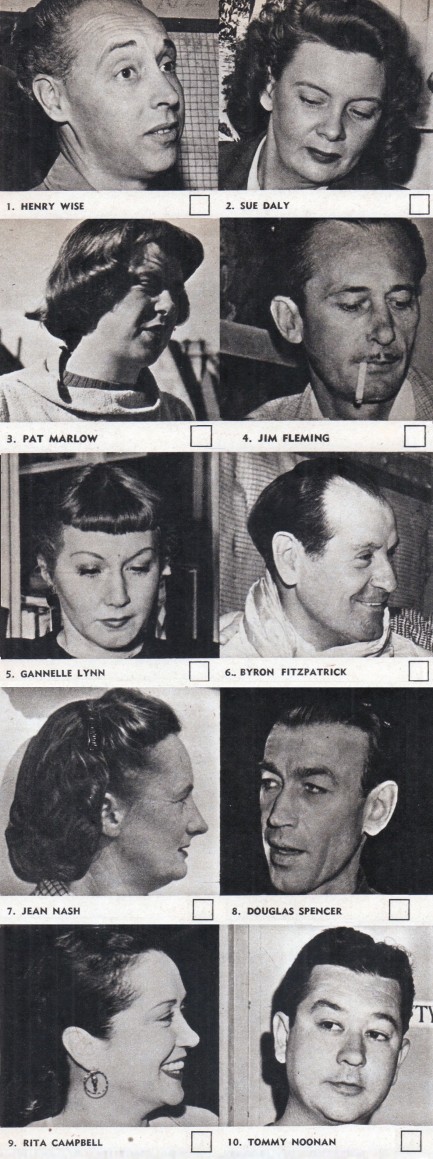
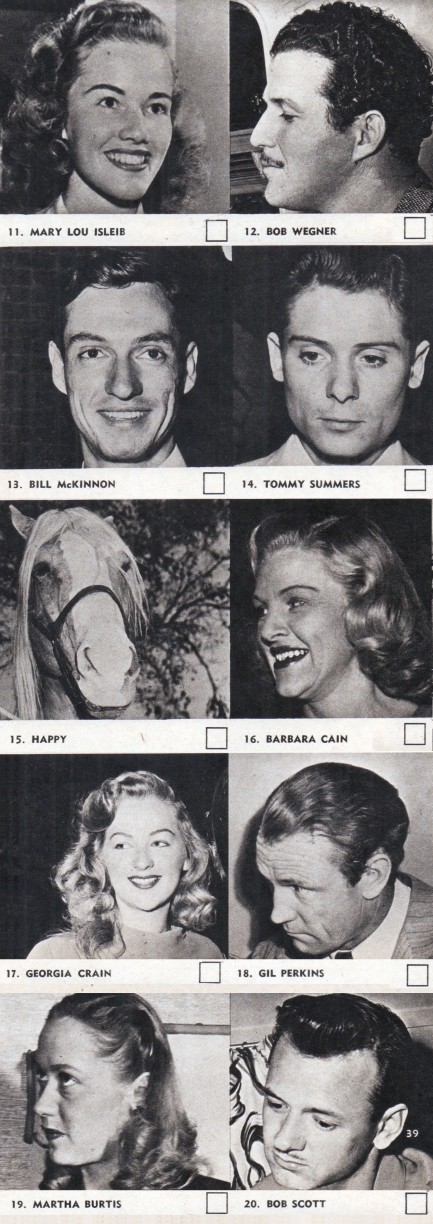



 The above crime scene drawing shows murder victim Ned Doheny, Jr. in the bedroom of his Los Angeles mansion after being killed by a gunshot to the head, along with a superimposition of where police imagine he was just before he was shot. From the above angle the event looks clinical, but a reverse view reveals an unholy mess, with Doheny's face and robe drenched in blood, and a dark pool spread across the carpet.
The above crime scene drawing shows murder victim Ned Doheny, Jr. in the bedroom of his Los Angeles mansion after being killed by a gunshot to the head, along with a superimposition of where police imagine he was just before he was shot. From the above angle the event looks clinical, but a reverse view reveals an unholy mess, with Doheny's face and robe drenched in blood, and a dark pool spread across the carpet. in 1929 he visited the Doheny mansion to talk with his pal Ned and hours later the result is what you see in the crime scene photos.
in 1929 he visited the Doheny mansion to talk with his pal Ned and hours later the result is what you see in the crime scene photos.
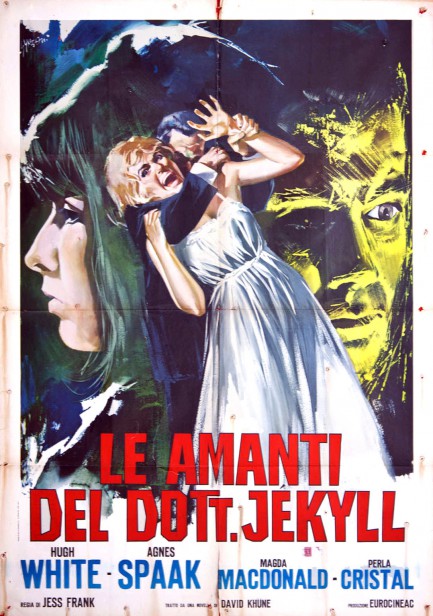
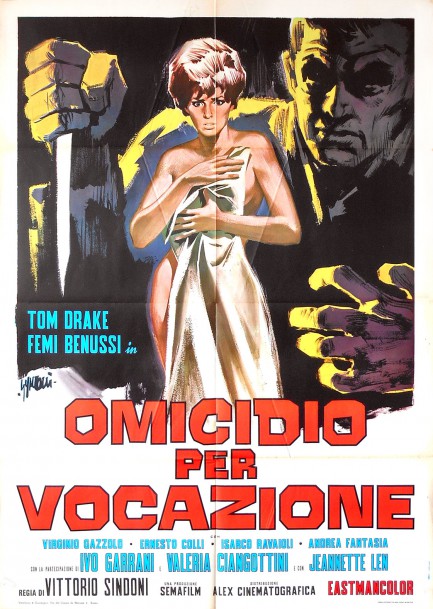
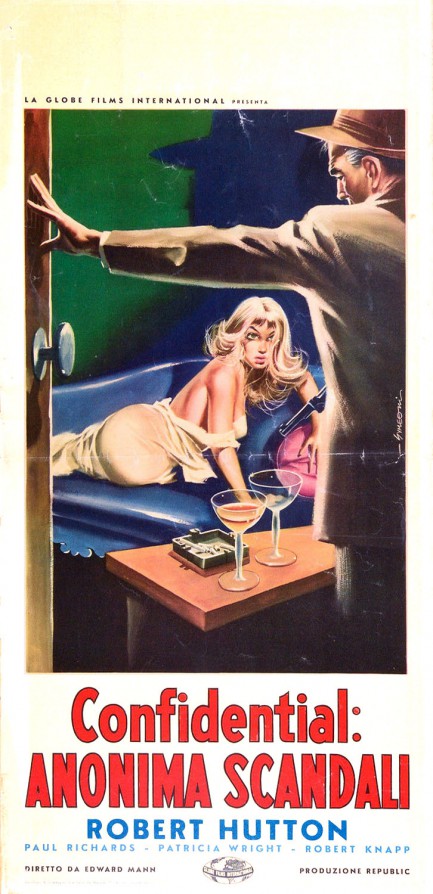
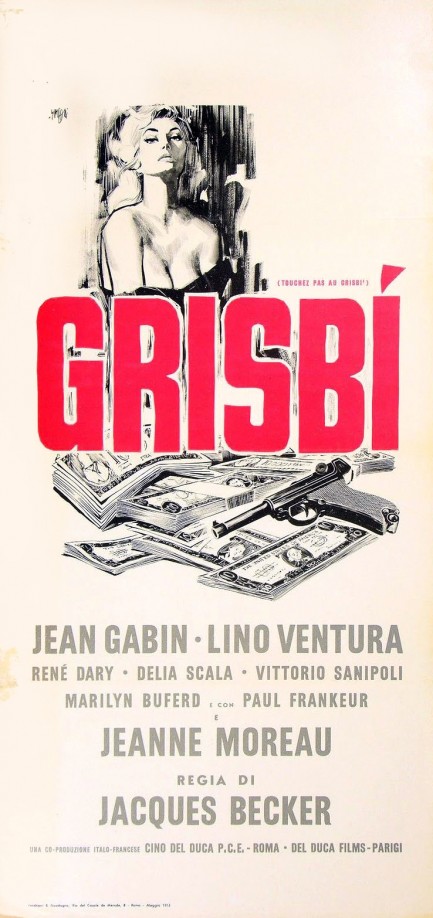
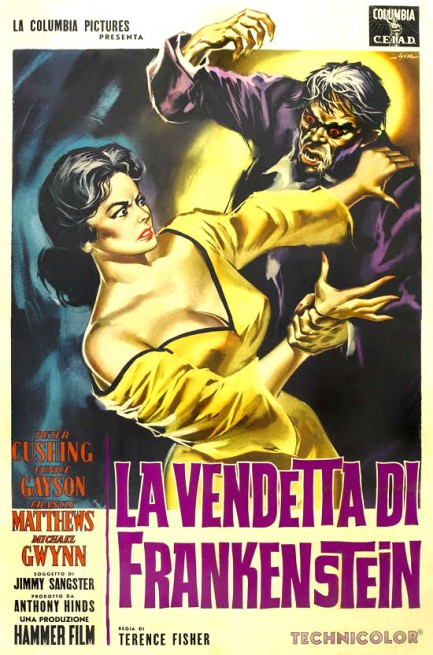







 the girls who attended private orgies arranged by Dr. Stephen Ward (in sunglasses on the magazine cover). Ward was an osteopath who dabbled in pimping, and his orgies were infamous. Open only to the rich and powerful, they featured not only beautiful girls, but the occult, sadomasochism, interracial sex shows, and so forth. Maureen Swanson later became the Countess of Dudley through marriage to Lord Ednam, so Keeler’s naming of her as a participant caused quite a bit of embarrassment to British nobility, for which she sued and won a settlement.
the girls who attended private orgies arranged by Dr. Stephen Ward (in sunglasses on the magazine cover). Ward was an osteopath who dabbled in pimping, and his orgies were infamous. Open only to the rich and powerful, they featured not only beautiful girls, but the occult, sadomasochism, interracial sex shows, and so forth. Maureen Swanson later became the Countess of Dudley through marriage to Lord Ednam, so Keeler’s naming of her as a participant caused quite a bit of embarrassment to British nobility, for which she sued and won a settlement.





































































